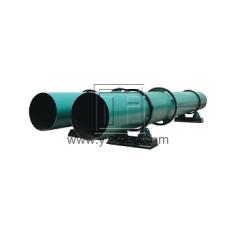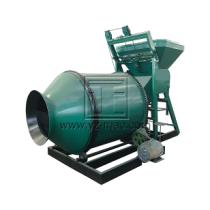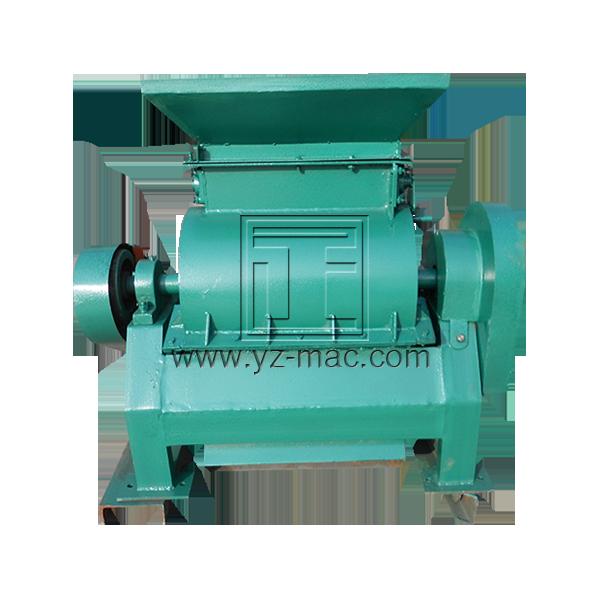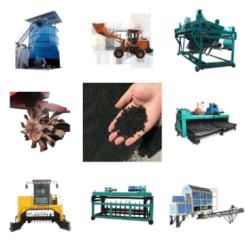Organic fertilizer granulator
An organic fertilizer granulator is a specialized machine designed to transform organic materials into granules, making them easier to handle, store, and apply. With their ability to convert organic waste into valuable fertilizer products, these granulators play a crucial role in sustainable agriculture and gardening practices.
Benefits of Organic Fertilizer Granulator:
Nutrient Concentration: The granulation process in an organic fertilizer granulator allows for the concentration of nutrients. By compressing organic materials into granules, the resulting fertilizer product contains a higher nutrient content per unit of volume or weight, ensuring an efficient and targeted nutrient supply to plants.
Controlled Release: Organic fertilizer granules can be engineered to provide controlled release of nutrients over an extended period. The granules gradually break down, releasing nutrients slowly into the soil, which promotes sustained plant growth and reduces the risk of nutrient leaching or runoff.
Improved Handling and Application: Granulated organic fertilizers are easier to handle, store, and transport compared to loose organic materials. The uniform size and shape of the granules allow for efficient spreading and application using various equipment, such as broadcast spreaders or fertilizer applicators.
Enhanced Nutrient Absorption: Organic fertilizer granules provide a more concentrated and readily available source of nutrients to plants. The controlled release of nutrients ensures that plants can efficiently absorb the fertilizers, promoting healthy growth, improved yield, and enhanced nutrient uptake.
Types of Organic Fertilizer Granulation Processes:
Drum Granulation: In drum granulation, the organic materials, along with a binder or adhesive, are fed into a rotating drum. As the drum rotates, the materials agglomerate and form granules. The granules are then dried and cooled before being screened for size consistency.
Extrusion Granulation: Extrusion granulation involves forcing the organic materials through an extrusion die to form cylindrical or spherical granules. The process relies on pressure and friction to shape the granules, which are subsequently dried and screened for quality control.
Pan Granulation: Pan granulation utilizes a pan or disc granulator to agglomerate the organic materials. The pan rotates, causing the materials to roll and collide, forming granules. The granules are then dried, sieved, and polished for uniform size and shape.
Applications of Organic Fertilizer Granules:
Agriculture and Horticulture: Organic fertilizer granules are widely used in agricultural and horticultural practices. They provide a balanced nutrient supply to crops, improve soil fertility, and promote sustainable farming methods. Granules can be applied during seeding, transplanting, or as topdressing to ensure optimal nutrient availability throughout the growing season.
Organic Gardening: Organic fertilizer granules are favored by organic gardeners for their environmentally friendly nature and ease of use. They enrich the soil with organic matter, improve plant health, and contribute to the overall sustainability of the garden.
Landscaping and Turf Management: Organic fertilizer granules are essential in landscaping projects, such as maintaining lawns, sports fields, and golf courses. They provide a controlled release of nutrients, supporting healthy growth, lush appearance, and sustainable turf management practices.
Soil Restoration and Remediation: Organic fertilizer granules are utilized in soil restoration and remediation projects. They help rebuild soil structure, improve nutrient content, and enhance microbial activity in degraded or contaminated soils, facilitating the recovery of healthy ecosystems.
An organic fertilizer granulator offers numerous benefits in nutrient delivery and sustainable agriculture practices. The granulation process enhances the concentration, controlled release, and handling of organic fertilizers, providing an efficient and eco-friendly means of enriching the soil and supporting plant growth. Different granulation processes, such as drum granulation, extrusion granulation, and pan granulation, offer versatility in producing organic fertilizer granules. These granules find applications in agriculture, horticulture, organic gardening, landscaping, and soil restoration. By utilizing organic fertilizer granules, we can promote healthier plants, improve soil fertility, and contribute to a more sustainable and environmentally conscious approach to farming and gardening.







